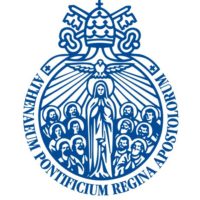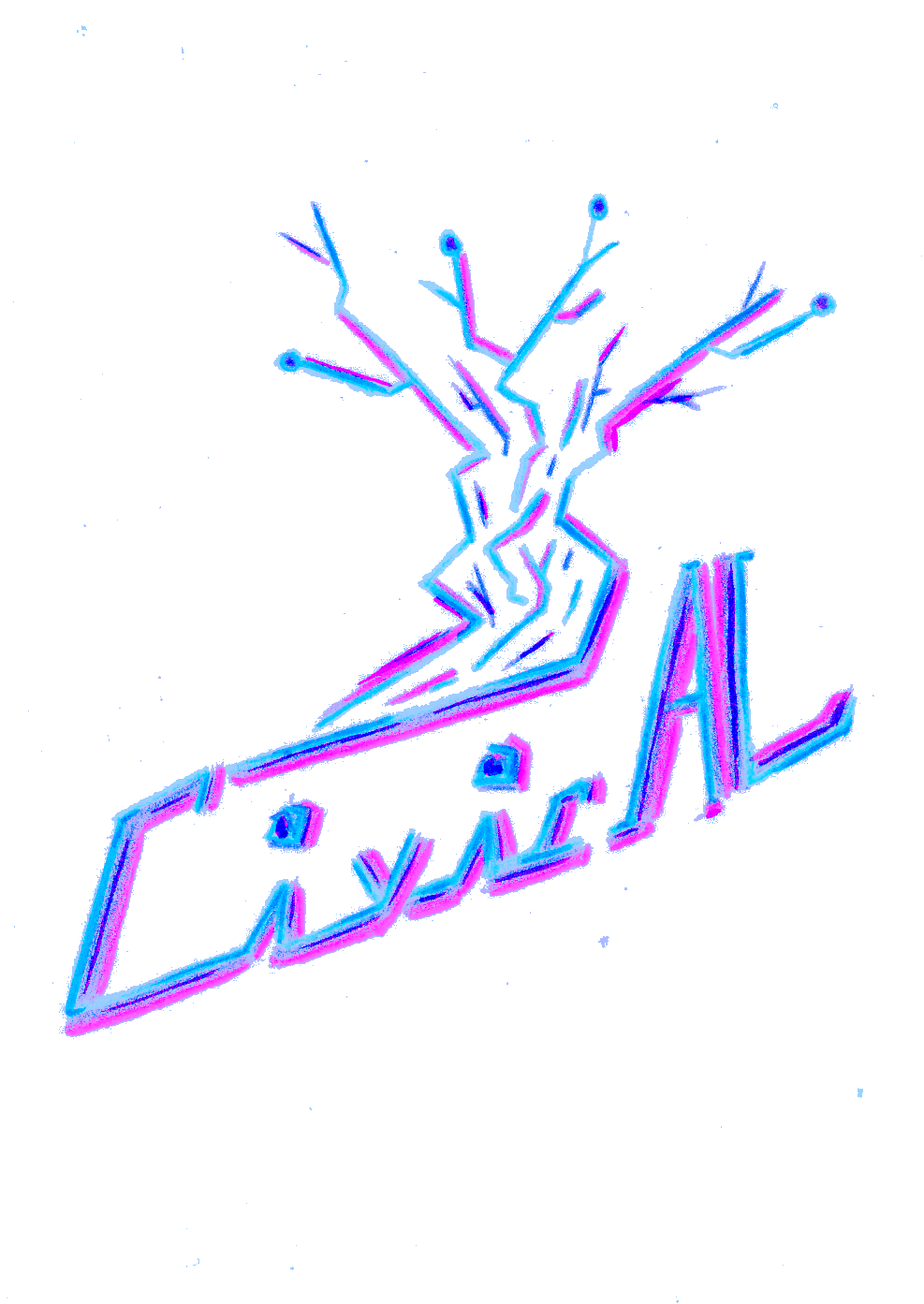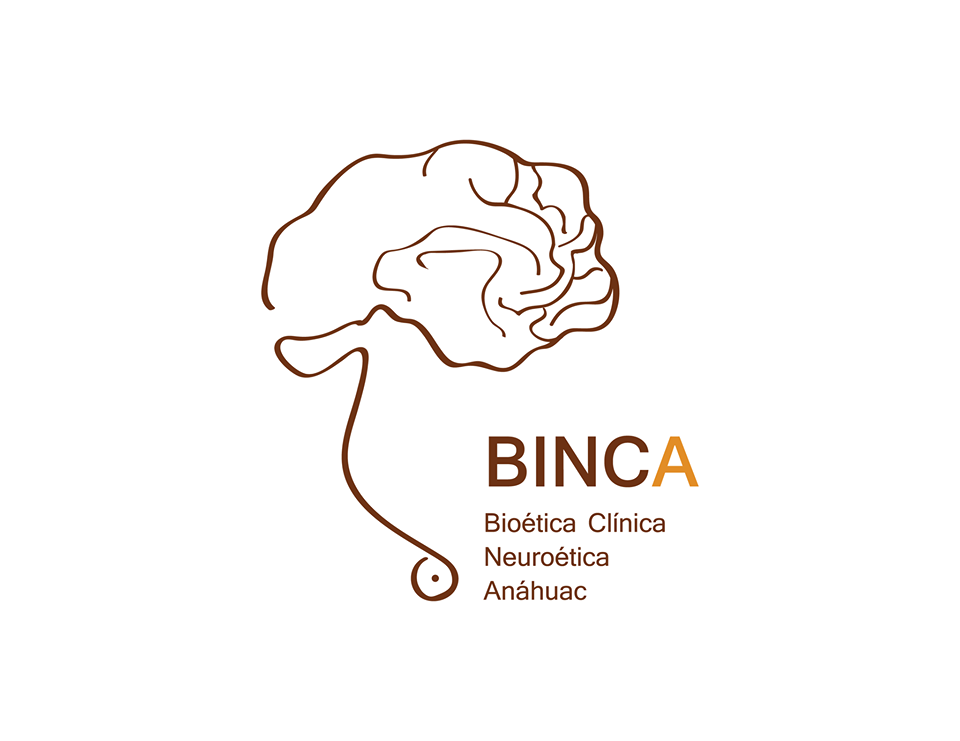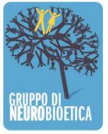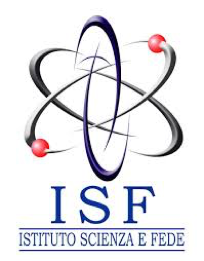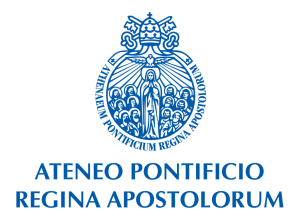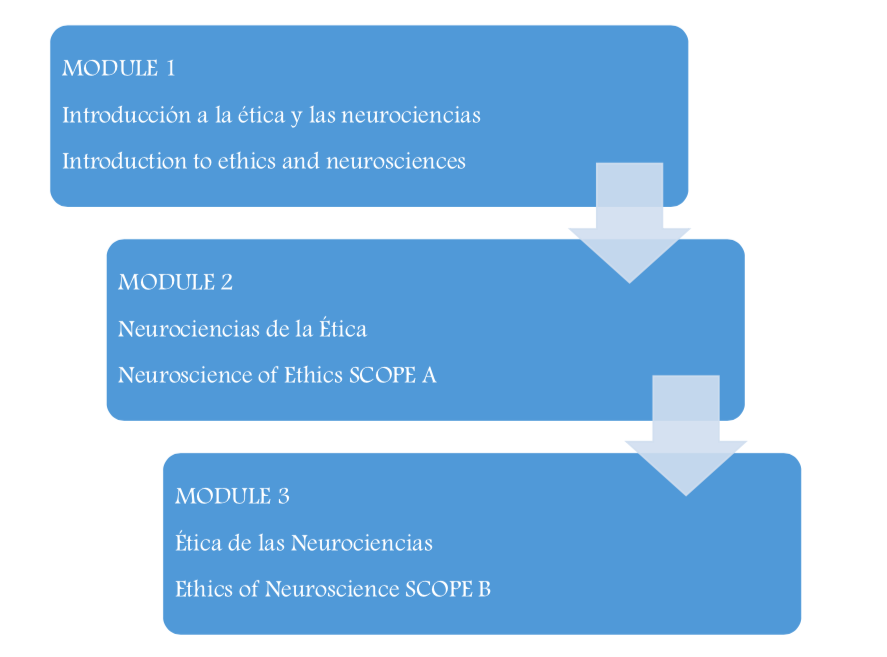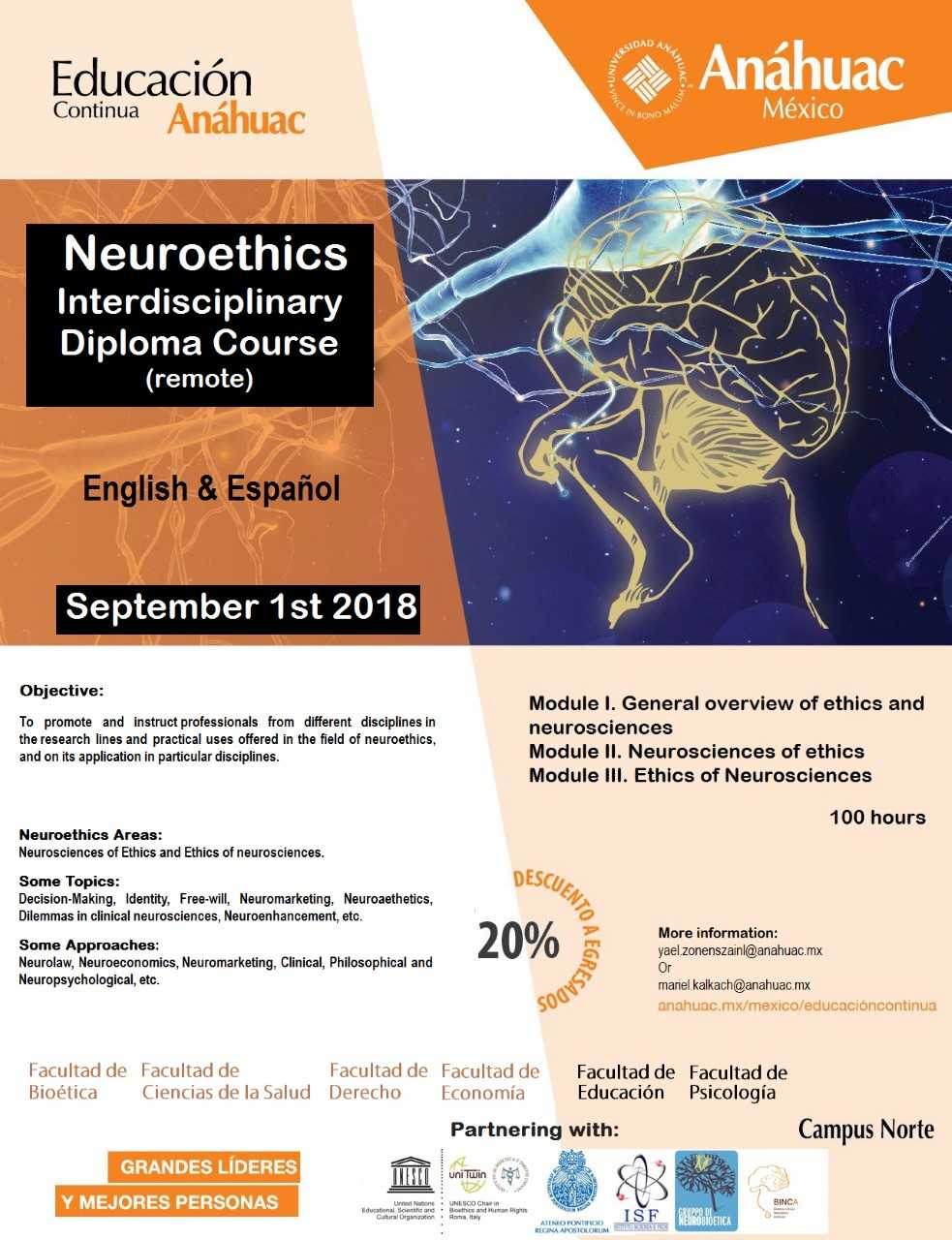Leave No One Behind: Launch of 2019 GEM Report UNESCO
On Tuesday November 27th, the Global Education Monitoring Report on Migration, Displacement and Education was launched at Accademia dei Lincei in Rome. The event was hosted by UNESCO and opened a window on the education for migrants and refugee by analyzing what have been done by governments until now. Ministers, academics, civil society, youth and UNESCO Chairs were present during the launching of the report; among them Franco Bernabè, President of the Italian National Commission of UNESCO; Stefania Giannini, Assistant Director-General for Education, UNESCO; Anna Cristina D’Addio, Senior Policy Analyst GEM Report, Fr. Fabio Baggio, Under-Secretary, Migrant and Refugees Section, Dicastery for the Promotion of Integral Human Development. For our UNESCO Chair in Bioethics and Human Rights, it was a moment of sharing the mutual principles on equal education in developed and developing countries.
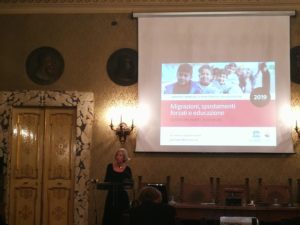 The 2019 GEM report focuses on “presenting evidence on the implication of different types of migration and displacement for education but also the impact that reforming the curricula, pedagogy and teacher preparation can have on embracing diversity,” Stefania Giannini. This report serves as a guide for teachers and governments to determine education objectives for future multicultural generations.
The 2019 GEM report focuses on “presenting evidence on the implication of different types of migration and displacement for education but also the impact that reforming the curricula, pedagogy and teacher preparation can have on embracing diversity,” Stefania Giannini. This report serves as a guide for teachers and governments to determine education objectives for future multicultural generations.
Franco Bernabè opened the discussions claiming that “in order to have social development it is crucial not to build walls but bridges,” rephrasing and broadening the subtitle of the report. The encounter of different cultures is what is needed to increase our societies.
Since our societies are becoming more multicultural, it is fundamental that our teachers are well prepared to communicate and teach children from different backgrounds. It is important to underline that the language used to study and to communicate are not the same.
Indeed, within the 2019 GEM Report are listed seven recommendations, which the main are the following: 1) teachers should receive more support to satisfy the quantity of roles and tasks that they are called to achieve to educate migrants and refugees. 2) Other Italian cities should look at some inclusive activities already established, for example, in Milan and Turin. 3) Governments should insist more on gathering data to estimate better the dimension of migration within their country.
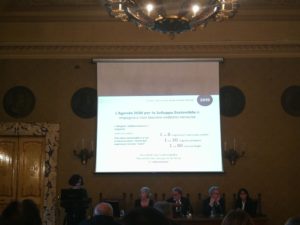
Anna Cristina D’Addio also emphasized the importance of increasing trainings for teachers: “it is relevant that they have the right workflow tools to make these kids, the new generations part of our communities.” Often teachers do not feel supported and well prepared to work in a multicultural environment. According to a survey done in France, Ireland, Italy, Latvia, Spain and United Kingdom, teachers agreed that adjusting the new requests in favor of migrants’ education brought much work and caused frustration due to the lack of support.
The second part of the conference was dedicated to discussions and opened questions. Eugenio Bruno of il Sole 24 Ore, chaired two round tables pointing out interesting arguments around the launching of the report. First, he asked to Fr. Fabio Baggio the Vatican point of view of the situation of migrants’ education, which should be based on the development of centered education. Mario Giro (Former Deputy Minister and Community of Sant ’Egidio), quite surprised, commented that finally UNESCO focused its research not only on the safeguarding of cultural heritage but also on education. Prof. Livi Bacci (University of Florence), on the other hand, introduceed the concepts of the Global Compact and its repercussion on Italian politics. Finally, Prof. Alberto Melloni (UNESCO Chair for Religious Pluralism and Peace), commented that the matter to migration (not an issue) linked to the religious aspects is not well considered in Italy.
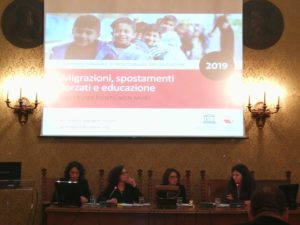
Anna Cristina D’Addio welcomed representatives of international organizations such UNHCR, IOM, and Save the Children in the second round table. Ana de Vega, Paola Alvarez, and Francesca Bocchino discussed the difficulties of accessing the education not only for children but also for adults. Often migrants are collocated in different classes increasing the number of migrants that leave education at early stages. Another factor that pushes away people from education is the bureaucracy and its complex procedures, problems which the 2019 GEM Report is committed to change and improve.
As a UNESCO Chair in Bioethics and Human Rights that promotes bioethical and human rights principles based on the Universal Declaration of Human Rights, it was illuminating being present during the launching of the 2019 GEM Report and contributing with our activities and mission. In this context it is important to underline the constant work that our UNESCO Chair has been doing through the project EUROSOL and CivicAL to improve and understand the nature of migration flow.

